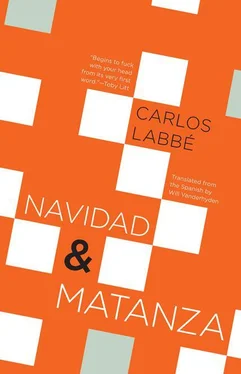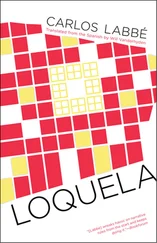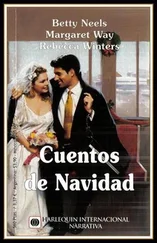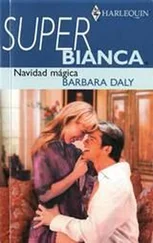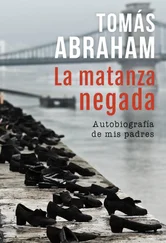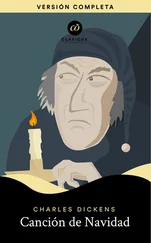I interrupted to ask the man where I could find this Boris. At the service station they both replied at the same time; the service station attendant is named Boris.
LITERATURE IS A LIE. Embrace the wind. Today is Saturday, the fourteenth day of September in the year two thousand and two since the birth of Jesus Christ. I’m sitting in front of the screen, the keyboard, and the speakers of my computer, at eight hours twenty minutes past noon, in an apartment in a building on Merced, whose number, with respect to the Plaza de Armas in Santiago de Chile, is four-hundred seventy-one. Twenty-five years have passed since my mother gave birth to me. More than twenty minutes ago a beautiful woman left my apartment, up from the armchair, out through the door into the hallway, and gone. Thirty minutes from now I’ll be sitting in front of the television. Only what happens exists. Only what I can see, hear, touch, smell, taste. Nevertheless, she bit her bottom lip and smiled. She looked at the floor. I sensed for a brief instant the chess game of God. She’d been thinking about me too, and my body was attracted to hers like metal to a magnet. It is now, here. You might say that I want to raise walls, construct a bedroom, write a chapter in a novel where the two of us would touch each other freely. But I don’t. She looks at the clock and says: I have to go.
It is a game. Not a novel.
There is no story. Only rules.
MARTES LET HIMSELF fall to the floor. His hands hurt and he was tired of thinking about ways of escaping. Surely Juan Carlos Montes had laughed seeing him running circles around the room and slamming into walls. He only hoped for two things: that Sabado was truly safe in a city somewhere, and that the message she’d sent him was a lie, a joke in bad taste devised by Domingo to frighten him. If Montes locked them together in a room, like the lab mice they were, the hadón would take effect and one of the two would end up killing the other. Which in itself would be useless, for the survivor would quickly be eliminated by Montes. At this point, he saw no way out but through the precarious lines of the novel-game that they began to write when there were still seven of them, like the days of the week.
DO YOU REMEMBER how many times we discussed that Wittgensteinian way of looking at things? And how many times we talked about idealism? That objects don’t exist, dear Sabado, only words, which build and break, build and break. It’s impossible to know what happens to the apple when you bite it. To write with hate. Under the effect of hadón, wanting my words not to bite the open chin, the purple cheek, the white eyes of Martes, but to bite your throat, your neck, your mouth, from a distance. Let me hate you, Sabado, since I can’t touch you, to dispel the death of these four walls. For this I write you.
“But tell me, do you hate me?” Martes asked me, before smashing his head against the wall of mirrors and falling unconscious to the floor. He’s not dead; he sleeps, I believe. I hope.
The only way to save the head is to train it. In the Lacanian sense of the term, Montes would say, because, he claims, the mind is only language.
Or an invention of language.
I too let myself fall to the floor of the entertainment room, my hands locked together, staring at Martes. They’ve locked the door from outside, right? He asked me. He already knew. He’d read it in an email you sent him, he said. We’ll kill each other beyond saving, Domingo. The compound should already be working in our hypothalamuses. Really I don’t hate you, he continued, occasionally I’ve been bothered by your need to control everything, just a little bit. That you seemed indifferent to the disappearances of Viernes, Miercoles, Lunes, and Jueves. But tell me, do you hate me?
No, I replied. I continued to stare at the ceiling, humming a suite by Debussy that my father listened to on Sundays, early in the morning. La la la la. La la la la la. Do you remember “Le mer?” Jueves bought a theremin on the Internet and it arrived on a Saturday. It was the perfect excuse to celebrate. While we put peanuts in his beer, Jueves moved his hands toward and away from the apparatus. The terrifying sound waves oscillated from the deepest to the sharpest. Uuuuuuu, uuuuuuuuuuuuuuuu. I don’t know. Jueves spent a couple weeks making sounds with it; he even printed the Debussy score. This must have been during the period when I was writing the story about the Congolese on the beach. You remember. It was a Friday night, we were playing cards. I got up to go to the bathroom and when I came back the chairs of Lunes, Miercoles, Jueves, and Viernes were empty.
“But, tell me, do you hate me?”
I stopped humming the suite when Martes’s shouts grew more powerful than my own. I told him: I’m not going to kill you, I’m sorry. I believe in God, that God gives and takes life, and that if I do it intentionally, I’ll be definitively separated from Him, which is the same as dying. Martes began kicking furniture and throwing papers in the air. Rage all you want, but don’t touch the computer, I howled. I brandished the leg of a chair, ready to give him a real blow in the neck, below the nape to calm him. He sat down and kept screaming that I was a fool, a fool. Only a fool can believe in God while at the same time experimenting with cannibalistic white mice. I closed my eyes. I remembered that when Jueves’s hands moved away from the theremin, the sounds were deeper. Martes continued. Shit on the angels, on the first, on the second, the third, the fourth, the fifth, the sixth, the seventh, shit on every single one of the days of creation. That’s what he said. And he added the names of the patriarchs, of the judges, of the prophets, of the kings, of the King. So I stood up and I took the chair leg in my hands. I calculated where I should strike him so there’d be no blood. Right at that moment he stopped talking. He asked me if I hated him. He moved quickly to dodge my blow, his right leg tangled with what was left of the couch and his head smashed against the mirrored wall. He’s unconscious now. Until someone kills him or revives him.
I remember it well. I came back to the entertainment room from the bathroom and there were four empty chairs. I thought they were pulling a prank. For the rest of the afternoon I opened every door, every closet, I looked under every bed. Nothing. Sabado and Martes were too busy to tell me if they’d seen the others leave. On the computer I wrote that Bruno and Boris Real had traversed the beaches of the central coast, so that later I could email that chapter to the others. While I was writing, I felt like I was walking the seaside streets of the novel. I was furious, as I am now. I’ve felt this way for a long time, ever since my mother took my brother to the supermarket and left me at home. Ever since I kissed a girl who I really liked; she moved her lips softly as if mouthing a phrase or a name. I backed away quickly and asked her what she was saying. I’m sorry, she whispered. A few days later I found out she was seeing someone else. There was someone following me when I left the market in Navidad. A little girl on roller-skates. She’s been behind me for a while, I thought; she knows something. I stopped and she stopped. She was beautiful, I remember: she was about to go through puberty. I thought that her name must be Alicia or Violeta — a strong name, tinged with adventure. And that she must’ve seen the others leave the laboratory and run to the beach. The girl must have an important message. Alicia, tell me, where are they? Who? She asked with an expression of distrust. Please, can you get out of the way? I need to get past. And she was gone.
Читать дальше
